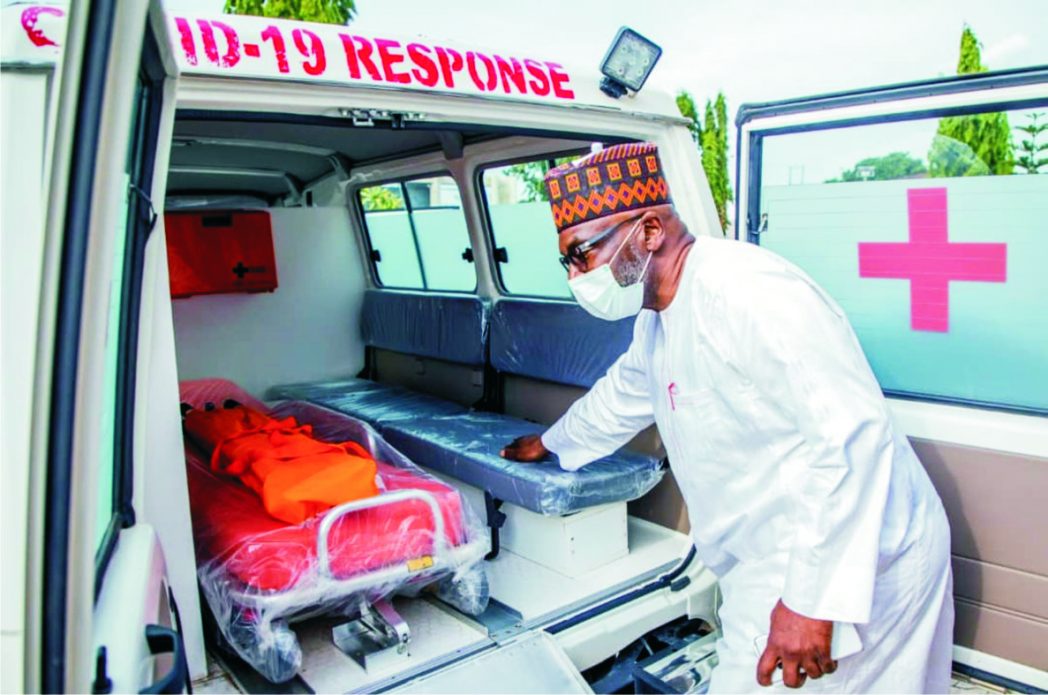News
COVID-19: 80% Infected Persons Don’t Show Symptoms – NCDC

The Nigeria Centre for Disease Control (NCDC) has stated that only 20 percent of suspected coronavirus infection is symptomatic.
Making the known at the weekend during a one-day training on COVID-19 for Civil Society Organizations (CSOs), organised by UNICEF, in collaboration with the Rivers State Ministry of Health, a representative of the National Rapid Response Team on COVID-19, NCDC, Dr Pius Ononigwe, said the remaining 80 percent are asymptomatic.
The implication of this, he said, is that 80 percent of people infected with the coronavirus do not have any idea on being infected because they don’t experience any symptom.
“What we’re trying to say is that about 80 percent of the people infected with COVID-19 do not show symptoms.
“You see symptoms in about 20 percent. Based on the present guideline, when ch we’re trying to expand, symptomatic cases are basically the Target now”, he said.
Consequently, he continued, “if we test symptomatic cases, those ones that asymptomatic are not tested”.
This, he said, justifies the institution of social distancing, continuous washing of hands with water, as well as all other preventive respiratory hygiene.
According to him, this knowledge would enable everybody to treat themselves as a suspect since no one can be totally sure of who has the virus.
“This way, we would be able to use these measures to cover the gap for some of the things we’re not able to do.
“At the end of the day, we’re going to go a long way in preventing the spread of the pandemic”, he concluded.
Meanwhile, the Chief of Field, Rivers State Office, UNICEF, Dr Guy Yogo, said as part of its Communication Strategic Plan to communities, some existing good behaviours have been identified in the communities.
According to him, more training would be carried out on these behaviours in the communities’ through the CSOs that are already being trained.
He stated that, “the Communication Strategic Plan will be built on key intervention activities relayed to exposure of risk of spreading of the disease in the communities.
“We know already that we have identified some good behaviours that we need to train more of our communities and environment. So, we’re going to Bering the plan to see how everywhere in the communities, our work places, we need to adopt good behaviours that will keep away the spreading of COVID-19″, he said.
Dr Yogo continued that in addition to training for prevention of COVID-19 infection, there is the need to also think about post COVID-19.
This, he said, is on how to cope with the impact of COVID-19, “and how we build resilient communities, individual resilience, and institutional resilience to recover in the quickest possible way from the outbreak”.
News
198 UNIBEN Students Bag First Class

News
Bayelsa Education Fund, British Council trains tra 1,000 teachers

News
RSG INAUGURATES ARMED FORCES REMEMBRANCE DAY COMMITTEE

The Rivers State Government has inaugurated a Central Planning Committee to organize the celebration of the 2026 Armed Forces Remembrance Day (AFRD) in the State.
The committee was formally inaugurated by the Secretary to the State Government, Dr. Benibo Anabraba in Port Harcourt, last Thursday.
Dr Anabraba who also serves as Chairman of the Committee
highlighted the State Government’s deep appreciation for the sacrifices of Nigeria’s fallen heroes who laid down their lives for the nation’s peace and unity.
“These heroes have given their lives for the security and peace of our nation and deserve to be celebrated. The Armed Forces Remembrance Day is an opportunity to show our gratitude for their sacrifice,” he said.
Dr. Anabraba further extended recognition to all Security Agencies in the State, emphasizing the importance of the event in appreciating their contributions to national security and sovereignty.
The annual Armed Forces Remembrance Day, observed on January 15 across the country is dedicated to remember Nigeria’s departed soldiers and honouring the nation’s veterans.



